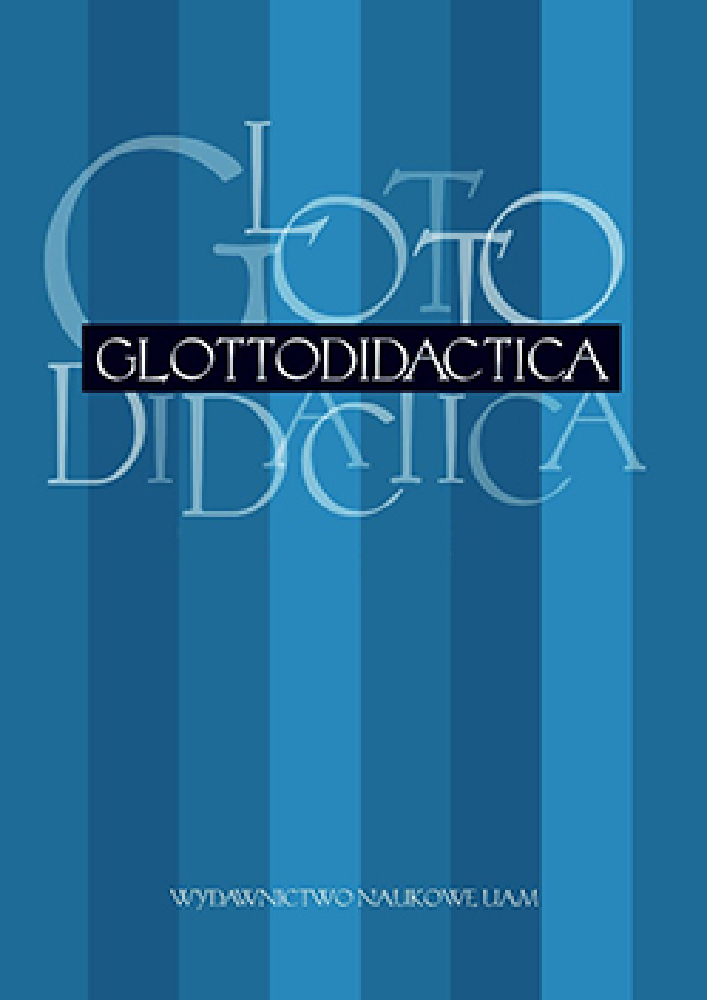Résumé
The aim of this paper is to justify the assumption that understanding is the essence of learning. From the constructivist viewpoint understanding is a complex mental and social process that involves decoding the symbolic message received from others and then interpreting and assigning a personal meaning to that message. Since personal background largely determines how the message will be understood it is important that the development of the learning environment encourages understanding from multiple perspective. Therefore the learning process should be based on techniques drawn from the constructivist’s epistemological assumptions, e.g., construction of intersubjective perspective, situated cognition in authentic life contexts and collaborative learning environment.Références
Anderson, J. R., 1996. Kognitive Psychologie. Heidelberg: Spektrum.
Beaugrande, R.-A. de/Dressler, W.U., 1981. Einfiihrung in die Textlinguistik. Tübingen: Niemeyer.
Bruner, ]., 1983. Child's talk: Learning to use language. New York: Niemeyer.
Johnson-Laird, P.N., 1989. Mental model. In: M.I. Posner (Hrsg.): Foundations o f cognitive science. Cambridge, MA.: MIT Press, 467-499.
Glasersfeld, E. von, 2003. Konstruktion der Wirklichkeit und des Begriffs der Objektivität. In: H. Gumin/H. Meier (Hrsg.): Einführung in den Konstruktivismus. München: Piper, 9-49.
Hörmann, H., 1994. Meinen und Verstehen. Grundzüge einer psychologischen Semantik. Frankfurt am Main: Suhrkamp.
Hymes, D., 1971. On Communicative Competence. Philadelphia: University of Pennsylvania.
Kintsch, W., 1974. The representation o f meaning in memory. Hillsdale: Erlbaum.
Levelt, W.J.M., 1999. Producing spoken language: a blueprint of the speaker. In: C.M. Brown/P . Hagoort (Hrsg.), The neurocognition o f language. Oxford: Oxford University Press, 83-122.
Lewicka, G., 2004. Zu einigen Problemen der Giottodidaktik aus der Perspektive der konstruktivistisch-
systemischen Kognitionstheorie. In: Kwartalnik Neofilologiczny LI/3, 257-262.
Lewicka, G., 2007a. Glottodydaktyczne aspekty akwizycji języka drugiego a konstruktywistyczna teoria uczenia się. Wrocław: ATUT.
Lewicka, G., 2007b. Zum Konzept des diskursiven Zweitspracherwerbs. In: B. Stein (Hrsg.), Wege zu anderen Sprachen und Kulturen. Hamburg: Dr. Kovać, 151-158.
Lewicka, G., 2007c. Prozeduren als Diskurshandlungen im giottodidaktischen Prozess. In: Glottodidactica XXXIII, 21-28.
Lewicki, R. /Lewicka, G., 1999. Didaktisch-methodische Konzeption zum Lehrwerk. In: Na und? Poradnik dla nauczyciela. Testy. Materialy do kopiowania. Warszawa: PWN, 7-18.
Maturana, H., 1970. Biology o f cognition. Urbana. Illinois: University of Illinois.
Maturana, H./Varela FJ., 1987. Der Baum der Erkenntnis. Bern, München, Wien: Scherz.
Piaget, 1948. Le langage et la pensee chaz l'enfant. Neuchâtel: Delachaux u. Niestl6.
Roth, G., 1996. Die Konstruktion von Bedeutung im Gehirn. In: SJ. Schmidt (Hrsg.) Gedächtnis: Probleme und Perspektiven der interdisziplinären Gedächtnisforschung. Frankfurt am Main: Suhrkamp, 360-370.
Rusch, G., 1992. Auffassen, Begreifen, Verstehen. In: SJ. Schmidt (Hrsg.): Kognition und Gesellschaft. Der Diskurs des Radikalen Konstruktivismus 2. Frankfurt am Main: Suhrkamp, 214-256.
Stern, D. N.,1985. The interpersonal world o fth e infant. New York: Basic Books.
Licence
Auteurs
Les auteurs de textes acceptés pour publication dans la revue Glottodidactica sont tenus de remplir, signer et renvoyer à l'adresse de la rédaction, un accord sur l'octroi d'une licence gratuite pour les œuvres, avec obligation d'accorder une sous-licence CC.
Conformément à cet accord, les auteurs des textes publiés dans la revue Glottodidactica accordent à l'Université Adam Mickiewicz de Poznań une licence non exclusive et gratuite et autorisent l'utilisation de la sous-licence Creative Commons Attribution-NoDerivatives 4.0 International (CC BY-ND 4.0).
Les auteurs se réservent le droit de disposer librement de l'œuvre.
Utilisateurs
Les utilisateurs d'Internet intéressés ont le droit d'utiliser les œuvres publiées dans la revue Glottodidactica depuis 2016, selon les conditions suivantes :
- Attribution – obligation de fournir, conjointement avec l'œuvre distribuée, des informations sur l'auteur, le titre, la source (lien vers l'œuvre originale, DOI) et la licence elle-même.
- Aucune modification – l'œuvre doit être préservée dans sa forme originale. Sans le consentement de l'auteur, il n'est pas possible de distribuer l'œuvre modifiée sous forme de traductions, publications, etc.
Les droits d'auteur sont réservés pour tous les textes publiés avant 2016.
Autres
L'Université Adam Mickiewicz de Poznań conserve les droits sur la revue dans son ensemble (mise en page, forme graphique, titre, conception de la couverture, logo, etc.).
A PARTIR DE L’ANNEE 2015, LES ARTICLES PUBLIÉS DANS LA REVUE SONT DISPONIBLES SOUS LICENCE CREATIVE COMMONS : https://creativecommons.org/licenses/by-nd/4.0/deed.fr




